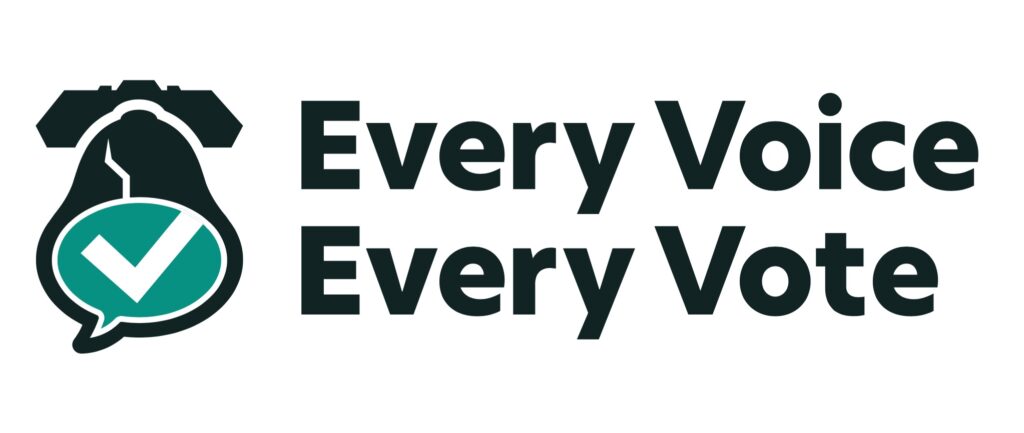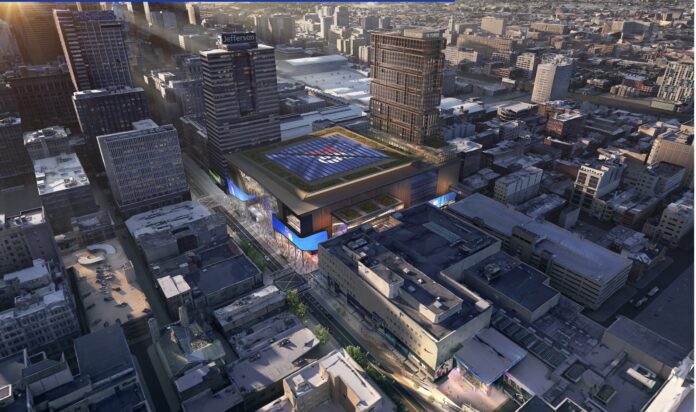“Today we voted against legislation authorizing the proposed 76ers Arena,” reads a joint statement prepared by city councilmembers Jamie Gauthier and Rue Landau following a Dec. 12 vote that did not go in their favor. “Barring major changes, we expect to oppose this legislation when it comes up for a final vote next week.”
This preliminary vote ended in a 12-4 loss for opponents of the arena — including many who cite the negative impact the project could have on marginalized locals who live, work and spend time in Chinatown and the Gayborhood. Legislation that would allow for the construction of the Sixers’ downtown arena advanced, and a final vote to approve the package of bills required for construction will take place on Thursday, Dec. 19.
It’s unlikely that opposition will make a difference in the outcome. Just five city council members oppose the plan — including Gauthier and Landau plus Nicolas O’Rourke and Jeffery Young (who voted against the legislation) and Kendra Brooks (who was absent).
“The 76ers and the Administration should have more thoroughly engaged the community before transmitting legislation to Council, especially while negotiating the Community Benefits Agreement,” adds the statement by Gauthier and Landau about the plan that is intended to offset the negative impact of the project on neighboring communities and businesses. “The divisive atmosphere around this proposal is a direct consequence of the rushed process [the 76ers and the Administration] imposed.”
The 76ers initially offered a $50 million community benefits agreement. Negotiations included a proposal of $300 million, which gained community support. This decreased to a plan announced by City Council President Kenyatta Johnson that asked the Sixers for $100 million — but that figure settled to $75 million by the morning of Dec. 12. Ultimately, just $60 million was included in the legislative package passed by city council’s preliminary vote. The funds will be distributed over 30 years.
“It is deplorable to learn the 76ers and their billionaire owners think our communities are worth only $60 million over 30 years,” Gauthier and Landau said in their statement, underlining that, in contrast, the Sixers recently gave a single athlete $193 million over just three years.
During the Dec. 12 vote, activists chanted together. One held a sign that said “$60 million is a sellout deal.”
“It’s literally a drop in the bucket compared to the total budget,” said Yoojin Park — a Korean-American drag king and social worker who has been active in the No Arena movement.
The money — which might sound like a big number to marginalized Philadelphians — could get eaten up quickly, especially because the deal also includes funding for citywide programs that are not related to the arena at all.
Park said the community benefits agreement largely includes “random stuff” that leaders who are not directly impacted by the arena came up with on their own — including the addition of programs community members don’t need without addressing many of their asks. One example is a $3 million allowance for students to attend games for free while those same students deal with major issues in their school buildings — such as a lack of air conditioning, asbestos and closures.
“You’re not even asking us what we want,” Park underlined, explaining that neither the development group nor Mayor Cherelle Parker has met with the No Arena Coalition.
“The city council and the local government don’t want what’s best for the people,” he added, underlining that projects like this — which put the wants of developers and billionaires above average Philadelphians — are happening all over the city. “And this arena is just one example of ignoring and denying them a voice.”
Activists organizing with No Arena Gayborhood previously cited the lack of community spaces, LGBTQ+ erasure, LGBTQ+ safety concerns, and issues with accessibility as just some of the reasons they oppose the project.
“We still deal with a lot of racism in the Gayborhood,” Park said during a panel hearing at City Hall in November. “And a huge reason is that half of it was literally erased.”
During his testimony, he explained that a police officer hit him without any verbal warning and another swung a baton at him twice during an action planned by No Arena Gayborhood, where the group delivered over 1200 anti-arena petitions to councilmembers. He noted that this experience is just one example of the city’s failure to take a democratic approach with the project.
“Do the people of Philadelphia really feel safe enough to come here and share their opinions?” he asked during his testimony.
Park believes the deal is bad for local and small business owners — including those in the Gayborhood. Although a portion of the community benefits agreement is being set aside for Chinatown businesses that will be affected by the project, Washington Square West and the Gayborhood weren’t included in economic impact studies and were not granted funding in the legislative package.
This comes as the only two Gayborhood bars owned by people of color, Cockatoo and Level Up Bar & Lounge, are shuttering. Park noted this as a sign that it’s already too costly to do business downtown. Rising costs make way, he said, for more gentrification — which he said will continue as a result of this arena project.
Park explained that many of the nightlife venues closest to the arena site are establishments in the Gayborhood, and he worries that they could be overrun with cis-het patrons who make LGBTQ+ people feel unsafe. He noted that this already happened with Woody’s — an historically LGBTQ+ bar that he said is no longer a queer-centered space.
“I have concerns that non-queer people will end up invading those spaces,” Park said, noting that the lack of concern over preserving LGBTQ+ safety and community makes it feel that Philadelphia City Council doesn’t view those people as valuable or valid.
“There is a real physical safety threat happening across the country for queer — and especially trans — people right now,” added Park. “So it’s definitely a real fear.”
“City Council’s preliminary arena vote demonstrated a failure of city leadership to advocate for the people of Philadelphia. City Council caved to the whims of billionaires and voted out of committee an embarrassing $60 million “community benefits agreement” (after themselves setting a floor of $100 million), which still hasn’t included any negotiations with the communities in Chinatown or the Gayborhood and doesn’t even come close to mitigating the harms that an arena would cause to the surrounding neighborhoods,” said Emily Goddard of No Arena Gayborhood.
This is a point Gauthier and Landau also noted in their statement before vowing to continue working with community groups to address their concerns as the project advances.
Gauthier and Landau also highlighted a failure to create a legitimate traffic plan — threatening ease of travel within and around the neighborhoods that surround the proposed arena as well as access to Jefferson Hospital’s emergency room — the only Level 1 trauma center in the city.“No Arena Gayborhood, along with the rest of the Save Chinatown Coalition, vows to continue fighting this disastrous arena project, and all Philadelphians, the vast majority of whom oppose the arena project, will remember City Council’s behavior at the ballot box,” Goddard added.

